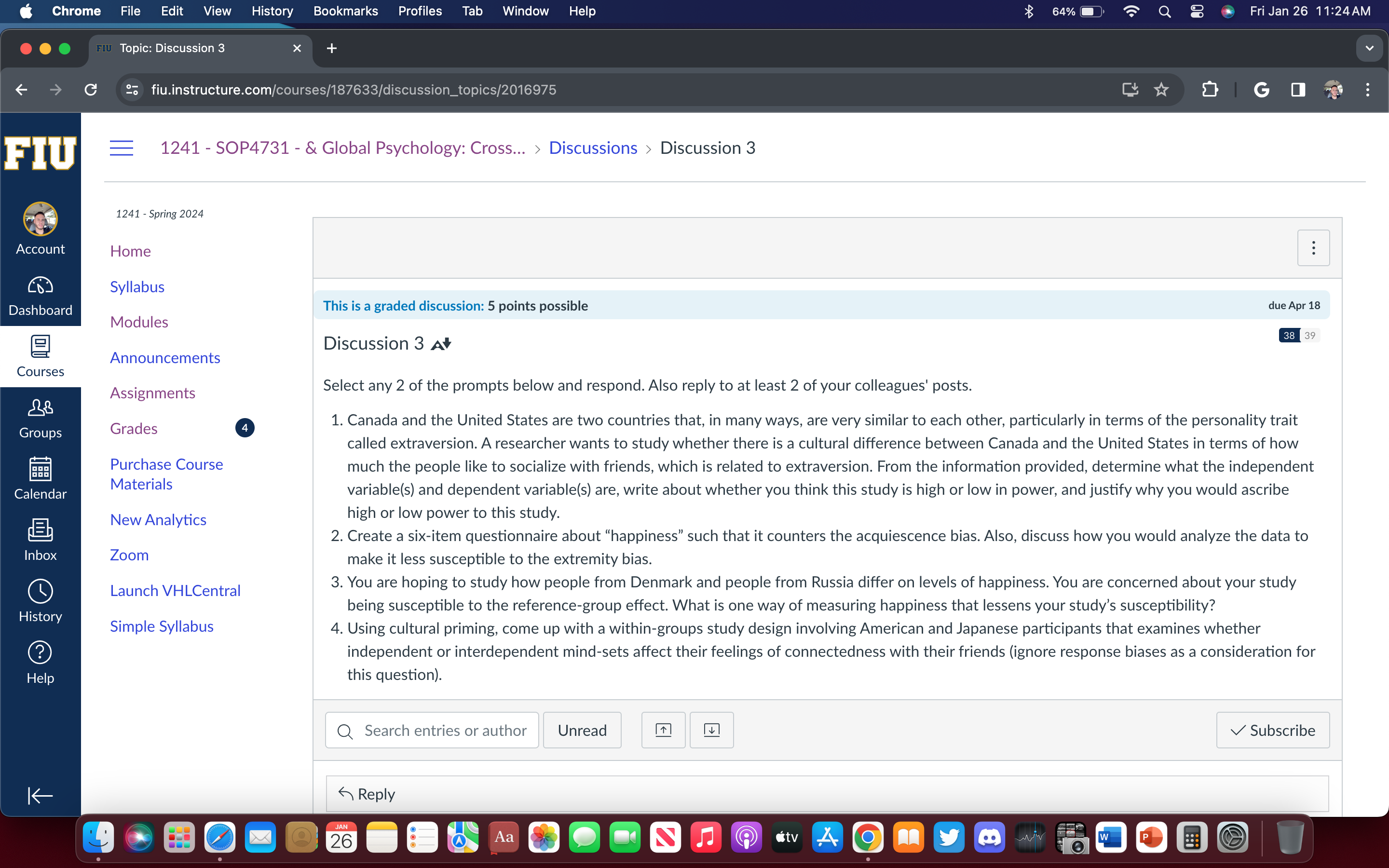Answered step by step
Verified Expert Solution
Question
1 Approved Answer
Chrome File Edit View History Bookmarks Profiles Tab Window Help + fiu.instructure.com/courses/187633/discussion_topics/2016975 C FIU Topic: Discussion 3 0- FIU = 1241 - SOP4731 -

Chrome File Edit View History Bookmarks Profiles Tab Window Help + fiu.instructure.com/courses/187633/discussion_topics/2016975 C FIU Topic: Discussion 3 0- FIU = 1241 - SOP4731 - & Global Psychology: Cross... > Discussions > Discussion 3 1241 Spring 2024 4 Account Home Syllabus Dashboard Modules Announcements Courses Assignments Groups Grades Purchase Course Materials Calendar New Analytics Inbox Zoom Launch VHLCentral History Simple Syllabus ? Help K- 64% ( 0 Fri Jan 26 11:24 AM G This is a graded discussion: 5 points possible Discussion 3 A Select any 2 of the prompts below and respond. Also reply to at least 2 of your colleagues' posts. due Apr 18 38 39 1. Canada and the United States are two countries that, in many ways, are very similar to each other, particularly in terms of the personality trait called extraversion. A researcher wants to study whether there is a cultural difference between Canada and the United States in terms of how much the people like to socialize with friends, which is related to extraversion. From the information provided, determine what the independent variable(s) and dependent variable(s) are, write about whether you think this study is high or low in power, and justify why you would ascribe high or low power to this study. 2. Create a six-item questionnaire about "happiness" such that it counters the acquiescence bias. Also, discuss how you would analyze the data to make it less susceptible to the extremity bias. 3. You are hoping to study how people from Denmark and people from Russia differ on levels of happiness. You are concerned about your study being susceptible to the reference-group effect. What is one way of measuring happiness that lessens your study's susceptibility? 4. Using cultural priming, come up with a within-groups study design involving American and Japanese participants that examines whether independent or interdependent mind-sets affect their feelings of connectedness with their friends (ignore response biases as a consideration for this question). Q Search entries or author Unread Reply Aa N tv A JAN 26 8 W P Subscribe
Step by Step Solution
There are 3 Steps involved in it
Step: 1

Get Instant Access to Expert-Tailored Solutions
See step-by-step solutions with expert insights and AI powered tools for academic success
Step: 2

Step: 3

Ace Your Homework with AI
Get the answers you need in no time with our AI-driven, step-by-step assistance
Get Started


